Publications

The EU Conflict Minerals Regulation: High stakes, disappointing results
The EU Regulation on the responsible supply of tin, tungsten, tantalum and gold (3TG) originating from conflict-affected and high-risk areas (CAHRAs) came into full force on 1 January 2021. Also known as the “Conflict Minerals” or “Responsible Minerals” Regulation, it aims to break the link between the exploitation and trade in 3TG on the one hand, and conflict financing on the othe
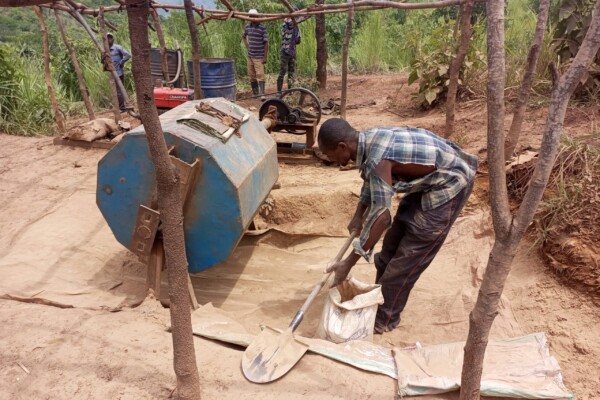
Sécuriser l’insécurité: Orpaillage semi-industriel et violence à Mwenga, Sud-Kivu en République Démocratique du Congo
- Claude Iguma Wakenge, Ken Matthysen | 6 octobre 2023
Depuis 2011, l’introduction progressive de nouveaux équipements miniers tels que les concasseurs a conduit à une mécanisation croissante des opérations d’exploitation artisanale de l’or ainsi qu’à l’arrivée de sociétés minières semi-industrielles dans le territoire de Mwenga (Sud-Kivu). Ce rapport fait partie d’un projet financé par USAID visant à examiner les liens entre les conflits armés, l’ins

International standards to prevent police gun violence
- Brian Wood | 29 septembre 2023
In many countries, the global and regional proliferation of small arms means that police and other law enforcers are under extreme pressure to counter rising levels of violent gun crime, and are expected to confront armed offenders. In the process, ill-trained and ill-disciplined officers with guns, sometimes kill, maim, and mistreat innocent people whom they are supposed to protect. Increasingly,
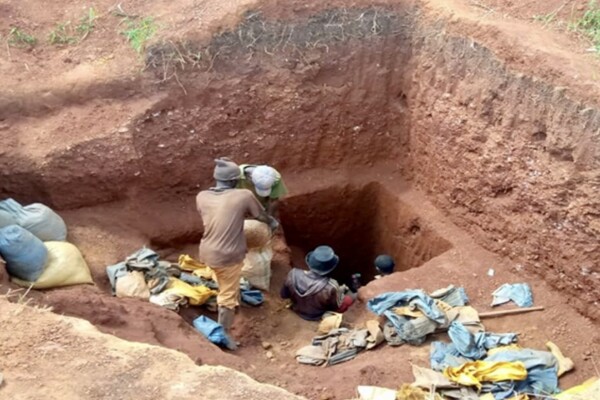
Voix du Congo: Le rôle de l’artisanat minier dans le processus de démobilisation et réinsertion des miliciens de la FRPI dans la chefferie de Walendu Bindi, Ituri
- Réseau Haki Na Amani (RHA) | 22 septembre 2023
Une publication de la série: VOIX DU CONGO Située au nord-est de la République démocratique du Congo, la province de l’Ituri a connu près de deux décennies d’activisme du groupe armé Force de Résistance Patriotique de l’Ituri (FRPI). L’échec du programme de démobilisation, de désarmement et de réintégration (DDR) lancé en 2020 et resté inachevé a conduit les combattants de la FRPI à retourner de m
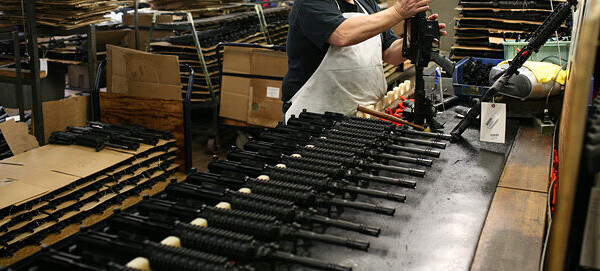
Due diligence responsibilities of businesses involved in small arms and light weapons
- Markus Fahlbusch | 18 septembre 2023
IPIS and the International Action Network on Small Arms (IANSA) have developed a Fact sheet on “Due Diligence Responsibilities of Businesses Involved in Small Arms and Light Weapons.” For over a decade, the international community has been developing guidelines for responsible business conduct for States and companies to prevent, address and remedy human rights abuses committed in business operati
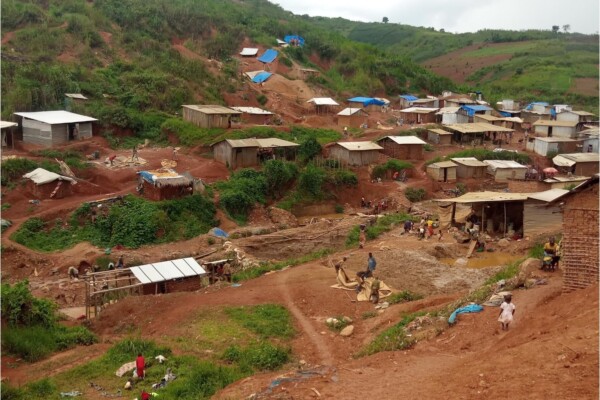
Groupes armés, contrôle territorial, conflits fonciers et exploitation aurifère à Djugu, Ituri, République démocratique du Congo
- Erik Gobbers, Josaphat Musamba | 10 août 2023
Fin 2017, près de quinze ans après la fin de la deuxième guerre du Congo, et après plusieurs années de coexistence pacifique relative, les tensions intercommunautaires se sont à nouveau enflammées dans la province de l’Ituri, dans l’est de la République démocratique du Congo (RDC). En décembre 2017, des incidents violents isolés entre des membres des communautés Hema et Lendu ont provoqué une esca
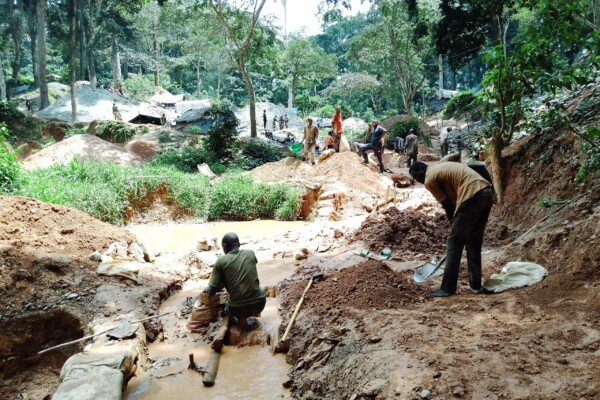
Annual Report 2022
- IPIS | 26 juin 2023
In 2022 IPIS continued its work throughout the gradual wind-down of the COVID pandemic and the outbreak of war in Ukraine. Throughout a turbulent year for civil society actors committed to peace, disarmament, and international dialogue, IPIS remained steadfast. Continuing to develop strong relations with key donors and maintaining its commitment to delivering excellent work in investigating a
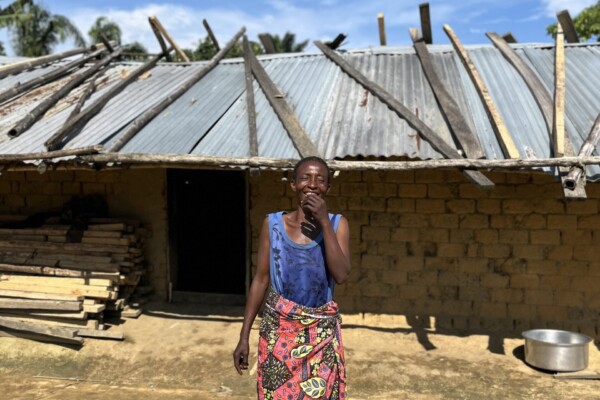
Unconditional Cash Transfers (UCT) in the DRC: Midline results of a pilot study in an artisanal mining zone in Maniema province
- Erik Gobbers, Thomas Muller | 19 juin 2023
In October 2021, the Belgian non-profit organization Eight World, started a pilot project of Unconditional Cash Transfers (UCT) in a village in an artisanal mining zone in the territory of Pangi, in Maniema Province, in the Democratic Republic of Congo (DRC). Eight World transfers cash directly to individual beneficiaries via a mobile money system. Each adult living in the UCT village receives 20
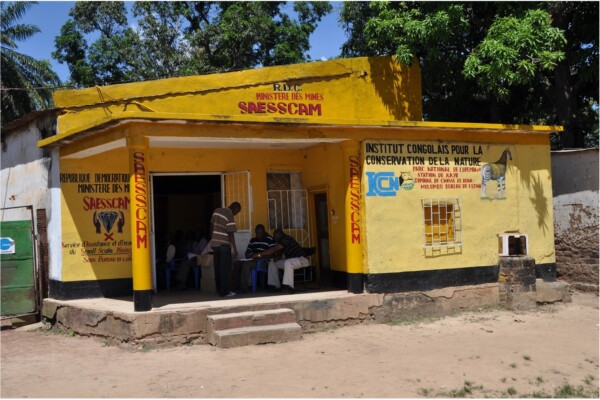
Taxes et prélèvements dans les sites miniers artisanaux du Sud Kivu et de l’Ituri : combien paie un mineur artisanal ?
- Guillaume de Brier, Jean-Paul Lonema (IMPACT), Thomas Muller | 14 avril 2023
Ce rapport est le résultat d’une étude de terrain de grande ampleur sur la fiscalité du secteur minier artisanal dans deux provinces de l’est de la République démocratique du Congo, l’Ituri et le Sud-Kivu. La principale conclusion est que les réglementations et les pratiques actuelles dans ce domaine contribuent non seulement à la contrebande de minerais – laissant une partie du potentiel fiscal d
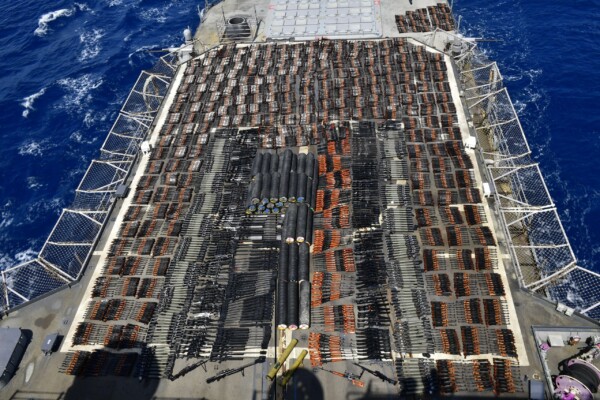
A human rights perspective on arms export licencing and access to information
- Hans Lammerant (Vredesactie) | 6 février 2023
Arms export licensing has long been dominated by two rationales: an interstate perspective and intrastate perspective. In the former arms licensing enables trust-building between nations while the latter increases government accountability. A human rights perspective is overdue in arms export licensing. Victims and their defenders should be able to pursue effective remedy when harm is in
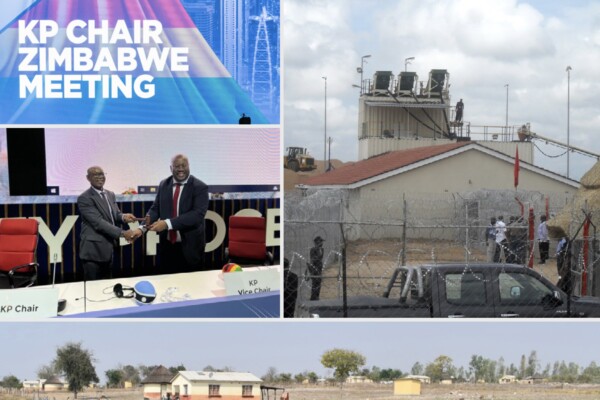
From laggard to leader? Zimbabwe’s turbulent diamond history
- Hans Merket, Jonatan Weenink | 31 janvier 2023
This IPIS Insight provides background and context to Zimbabwe’s current Kimberley Process chairmanship, both historically and in light of whether it might present opportunities for government and corporate actors in the country to exorcise their demons.
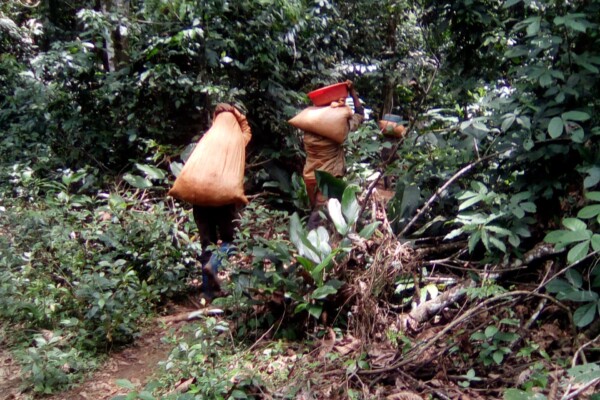
Armed conflict, insecurity, and mining in eastern DRC: reflections on the nexus between natural resources and armed conflict
- Erik Gobbers, Ken Matthysen | 7 décembre 2022
This report offers a new framework for looking at the eastern Congo conflict, one within which new evolutions of the past twenty years find a place. Indeed, violent conflict in eastern Congo has changed dramatically in all its aspects over the past two decades. Yet too often policymakers and observers appear to assume that we are dealing with a proxy war orchestrated from the DRC’s eastern neighbo
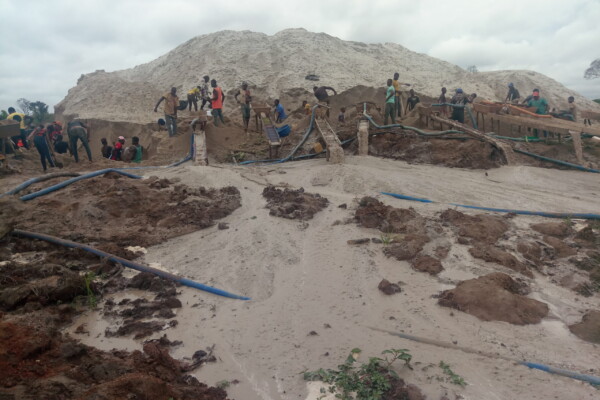
Analyse de la carte interactive des zones d’exploitation minière artisanale dans l’Est de la République démocratique du Congo (2022)
- Ken Matthysen, Ntakobajira Zacharie Bulakali, Thomas Muller | 29 novembre 2022
télécharger le Synthèse (FR) Dans l’est de la République démocratique du Congo (RDC), le secteur de l’exploitation minière artisanale et à petite échelle (EMAPE) joue un rôle important dans l’économie locale. Alors que les conflits armés à grande échelle autour des richesses minières de la RDC ont considérablement diminué au cours des vingt dernières années, les acteurs armés continuent d’interfér
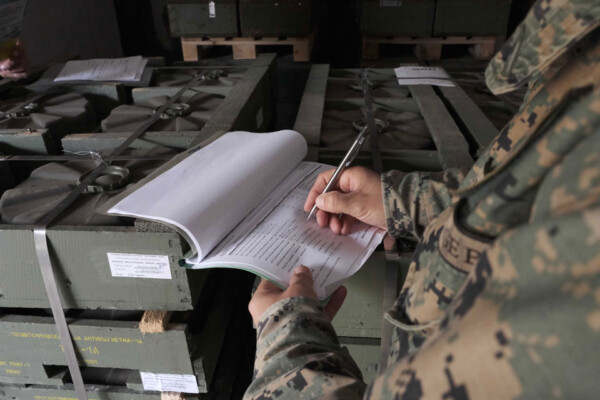
Contrôle après expédition des armes légères et de petit calibre
-
| 4 novembre 2022
Le commerce illicite des armes légères et de petit calibre (ALPC) et de leurs munitions, pièces et éléments reste un problème international grave dans de nombreux États. Pour prévenir le commerce illicite des armes classiques et empêcher leur détournement vers le marché illicite, tous les États se sont engagés depuis 2001 à mettre en place des systèmes plus solides qui garantiront un contrôle resp
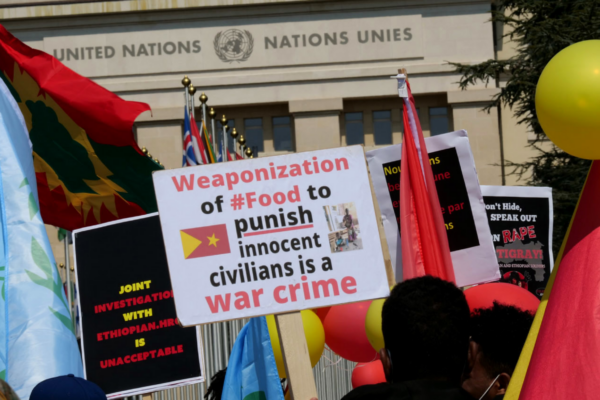
Famine as weapon of war – A timeline of the Tigray conflict
-
| 19 octobre 2022
In May 2021 CNN reported that Eritrean troops in coordination with the Ethiopian military were blocking aid deliveries to parts of Tigray not under Ethiopian government control. In an exclusive interview with Reuters a senior UN official alleged that starvation was being used as a weapon of war. U.N. humanitarian coordinator Mark Lowcock told Reuters that Eritrean forces were “trying to deal with
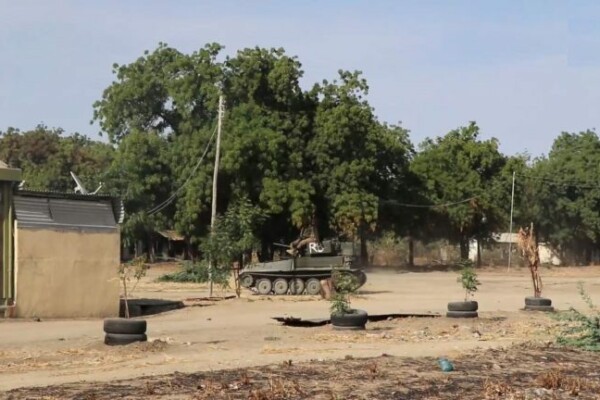
La gestion du matériel létal dans les situations de conflit : actuels défis et opportunités pour la Facilité européenne pour la paix
- Eric G. Berman | 12 octobre 2022
Ce document, fruit d’une collaboration entre Eric G. Berman (directeur de l’initiative « Sauvegarde des Stocks du Secteur de la Sécurité» (S⁴)) et de IPIS, montre que les niveaux de perte de personnel en uniforme servant dans des opérations soutien de la paix dans la région du bassin du lac Tchad sous l’égide de la Force multinationale mixte (FMM), ainsi que la saisie de matériel létal p
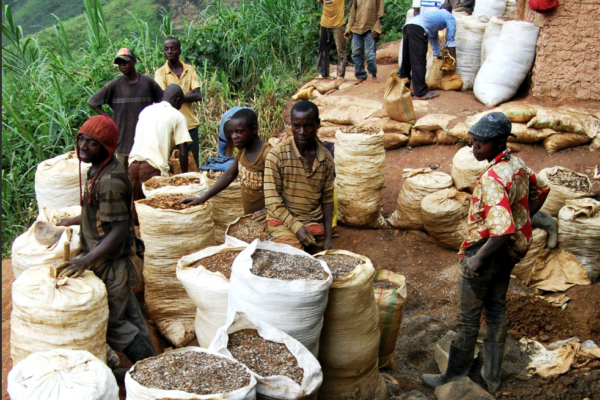
Règlement européen sur l’approvisionnement responsable en minerais: Quels sont les enseignements tirés pour la révision à venir et les nouvelles propositions législatives ?
Le 1er janvier 2021 marqua l’entrée en vigueur du Règlement européen sur l’Approvisionnement responsable en Etain, Tungstène, Tantale et Or (minerais connu en anglais sous l’abréviation 3TG) provenant de zones affectées par des conflits et à haut risque (ci-après dénommé CMR de l’UE ou règlement). L’objectif du règlement est de contraindre les entreprises européennes à effectuer des contrôles de d
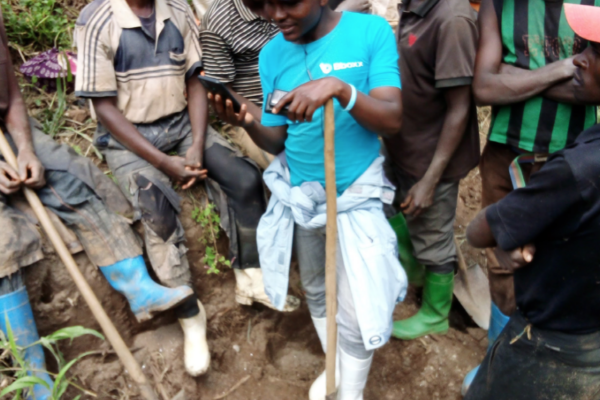
Matokeo – Data collection on ASM in eastern DRC
- Alexandre Jaillon, Ulula | 27 septembre 2022
‘Matokeo’ (meaning ‘impact’ in Swahili) is a data-driven platform operating in the Democratic Republic of Congo (DRC) with the ability to reach last mile artisanal miners, enabling them to ping the latest international price of gold. Conceptualized by Ulula and the International Peace Information Service (IPIS), the project won a Conservation X grant in October 2020 for its ability to remotely col
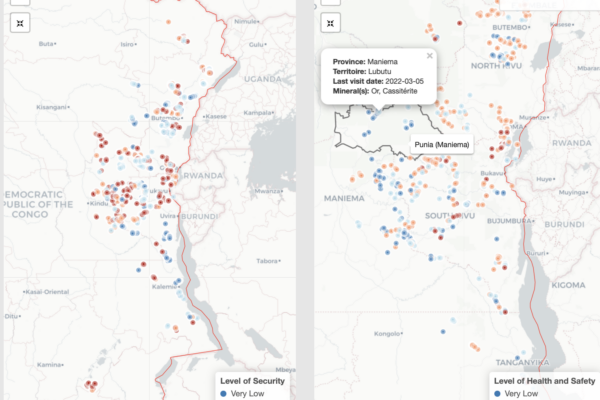
Responsible mining scorecard in eastern DRC
-
| 31 août 2022
Over the years, IPIS has systematically collected mine site and trade hub level data on artisanal and small-scale mining (ASM) in eastern DRC. This data collection has enabled IPIS to generate a sizable database of more than 3,000 ASM sites that draws both on sites visited by IPIS and data from third party sources including the Congolese mining cadastre and the Mini
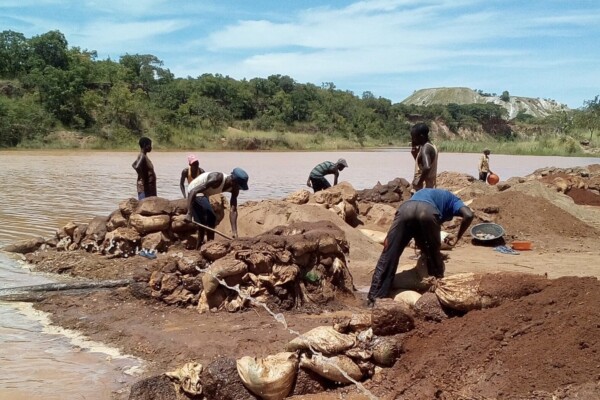
Annual Report 2021
- IPIS | 13 juillet 2022
2021 has proven to be a fundamental year for IPIS. In the background of the global health crisis and its various impacts on partner organisations and multilateral frameworks, IPIS continued to fulfill its role in investigating armed conflict and human rights violations, addressing business practices, and being present in networks and platforms with information and advice. This annual report gives

